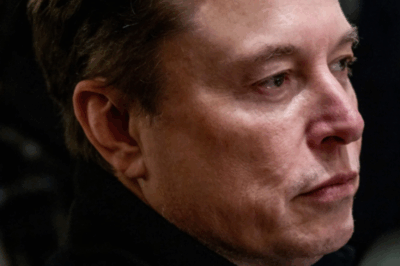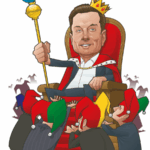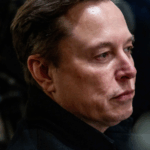Tesla, tech stocks, cryptocurrencies, or any asset with a compelling story are turning participants into “naked” emperors.
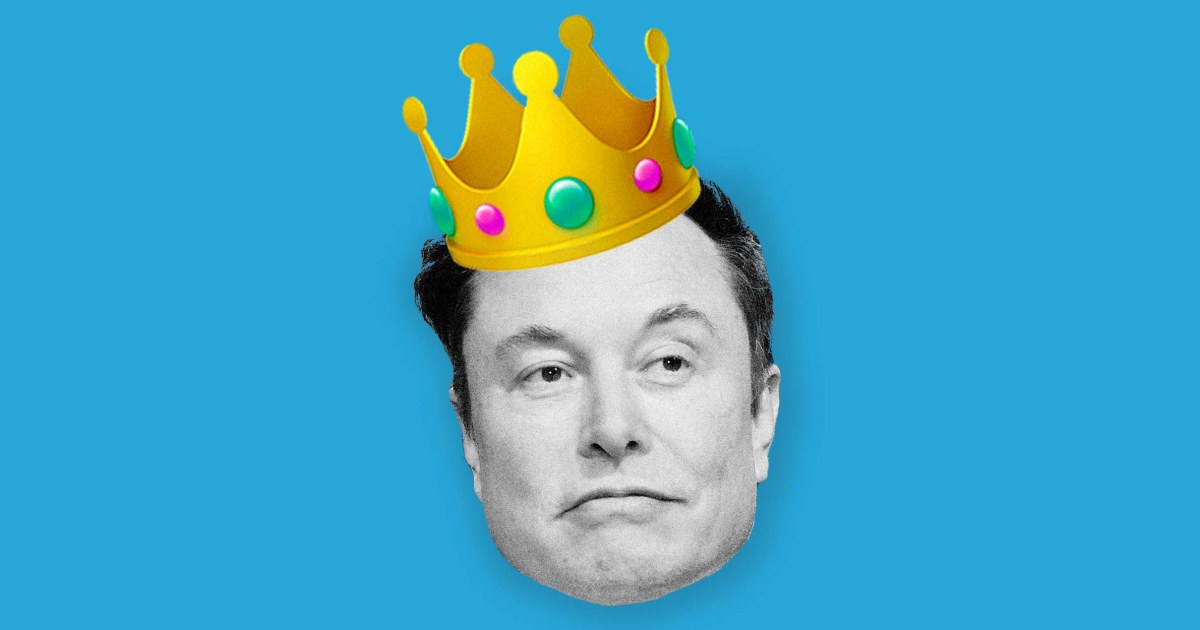
“The Emperor’s New Clothes” is a famous fable about an emperor who was extremely arrogant and loved to dress. One day, two swindlers came to the capital and claimed to be talented tailors, saying that they could weave a beautiful cloth, which only the wise and worthy could see, but the stupid or incompetent could not see anything.
The emperor, eager for fame and curiosity, immediately hired these two “tailors” to make him a new set of clothes. The entire court, fearing that they would be considered stupid or incompetent, pretended to see the “beautiful clothes”. Finally, when the emperor wore the “new clothes” and paraded through the streets to great acclaim, everyone pretended to praise him, even though he was actually naked.
It was only when a child in the crowd innocently exclaimed “The king is wearing nothing!” that everyone realized the truth, but it was too late.
The fairy tale of “The Emperor’s New Clothes” is a clear lesson in daring to speak the truth when it is right in front of you. In reality, the emperor was not wearing any elaborate clothes. He was naked like a fool.
Today, amid the glitz and glamour of soaring price charts and profit mania, the old tale of “The Emperor’s New Clothes” is all the rage. Except, in the modern version, the emperor is Wall Street and the crowds cheer not because they believe, but because they are making money together, and there is no better example than the Tesla empire and its founder Elon Musk.

“King of Wall Street” and the invisible suit
Over the past several years, Wall Street and global asset markets have witnessed a remarkable shift: the market value of many companies and assets has become completely detached from their intrinsic value based on fundamentals.
The fairy tale of “The Emperor’s New Clothes” is no longer just a warning, but has become an accurate description of modern investment philosophy, where people choose to believe the hype to collectively benefit from growth, instead of calling out the naked truth.
This decoupling is driven by what analysts call “Vibe-Trading” or the “Number Go Up” philosophy, an investment environment in which the power of a compelling narrative and collective belief in price growth has become the primary driver, rather than traditional financial metrics such as revenue, profits or free cash flow.
The goal is no longer to find an undervalued company, but to buy an asset that you believe will be bought by many others at a higher price in the future.
On the stock exchanges, stock prices are increasingly divorced from real business numbers. Fundamentals such as profits, revenue, and market share, once considered guiding principles, are now being pushed aside in favor of “collective belief” that prices will continue to rise.
Investors who choose to stay out because they think valuations are too high may be right in the Warren Buffett way, but fear of missing out (FOMO) and rush in to buy.
A generational “buy the dip” mentality has become a reflex. Every dip is seen as an opportunity to get rich, not a warning. This makes the market virtually immune to bad news: rising interest rates, falling sales, even falling profits are all ignored as long as prices continue to rise.
There is no better example of this than Tesla, the world’s most valuable automaker, whose stock price does not reflect its core electric vehicle business, which is struggling and losing market share to competitors.
Instead, much of Tesla’s value is attributed to products and technologies that are still on the drawing board or have not yet reached commercial scale.
Elon Musk has said that Tesla is no longer a car company (though cars are still the only product that generates real revenue). Now, Tesla is an artificial intelligence and robotics company, betting its future on self-driving robotaxis (still in development, buggy, and years behind Alphabet’s Waymo) and a $20,000 humanoid robot (also unfinished, and still requiring a human driver to do the housework it’s advertised as doing “on its own” in the future).
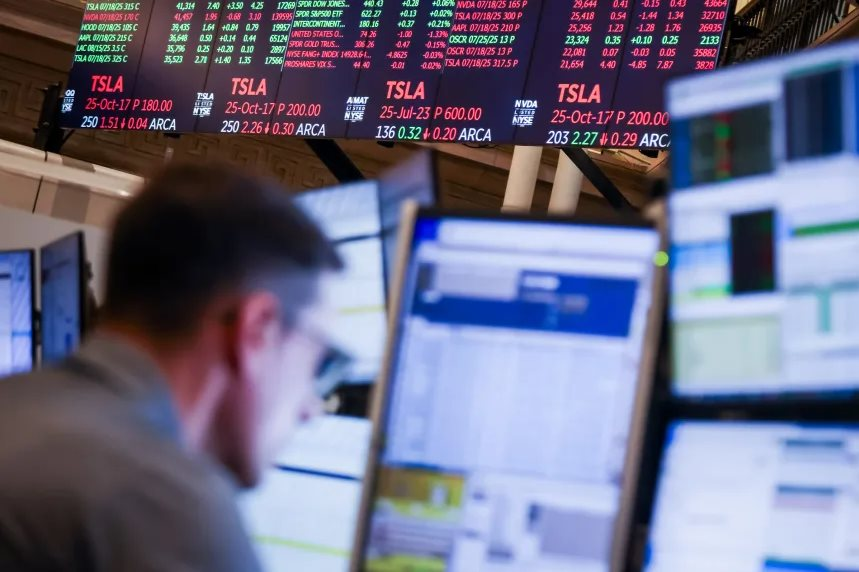
Analysts point out that more than half of Tesla’s market capitalization comes from the potential of robotaxis, AI and humanoid robots – areas that are promising but still far from proving financially viable.
CNN also believes that Tesla’s case is a typical example of the “naked emperor” era. According to Bank of America’s estimates, only 12% of the company’s value comes from the car segment, the rest is largely based on products that do not exist or cannot be commercialized: robotaxis (45%), “Full Self Driving” self-driving software (17% although it is not yet stable and few customers are willing to pay), humanoid robots.
Despite this, Tesla’s stock has risen 75% in a year, bringing the company’s market capitalization to $1.5 trillion, the highest in the global auto industry. Tesla remains the world’s most valuable automaker, and Elon Musk, despite his partisan comments that reportedly cost Tesla 1 million orders, remains the richest person in the world, and could become the first trillionaire in history.
The irony is that while the core business is losing steam, investors are not interested. They are not buying Tesla because they believe in the current product, but because they believe in an image of the future, a future that has no real evidence. Like the crowd in Andersen’s story, everyone can see the invisible “suit,” but no one wants to be the first to say it’s not real.
The market is valuing Tesla not based on the company it is, but on the company Elon Musk says it will become. This is a valuation based on maximum expectations, ignoring development, competitive, and regulatory risks. For Tesla, hype has become its most valuable business asset.
Bubble of Confidence
The phenomenon is spreading beyond Tesla. Tech stocks, cryptocurrencies, and any asset with a compelling story have become the focus of speculation. Bitcoin has risen more than 700% in the past five years, despite its lack of real-world applications, while the S&P 500 has risen only 110%. Stock indexes continue to hit new highs, despite warnings from the International Monetary Fund (IMF) that valuations are abnormally high relative to the real economy.
Investors know the risks exist, but they believe that someone else will be the last one holding the “hot coal”. This confidence turns the market into an intellectual casino where “collective belief” is more powerful than any financial report.
The success of inflated assets has created a cruel paradox in the market. Value investors like Warren Buffett may be theoretically right in warning about sky-high P/Es and absurd valuations, but they have been left behind in terms of actual assets.
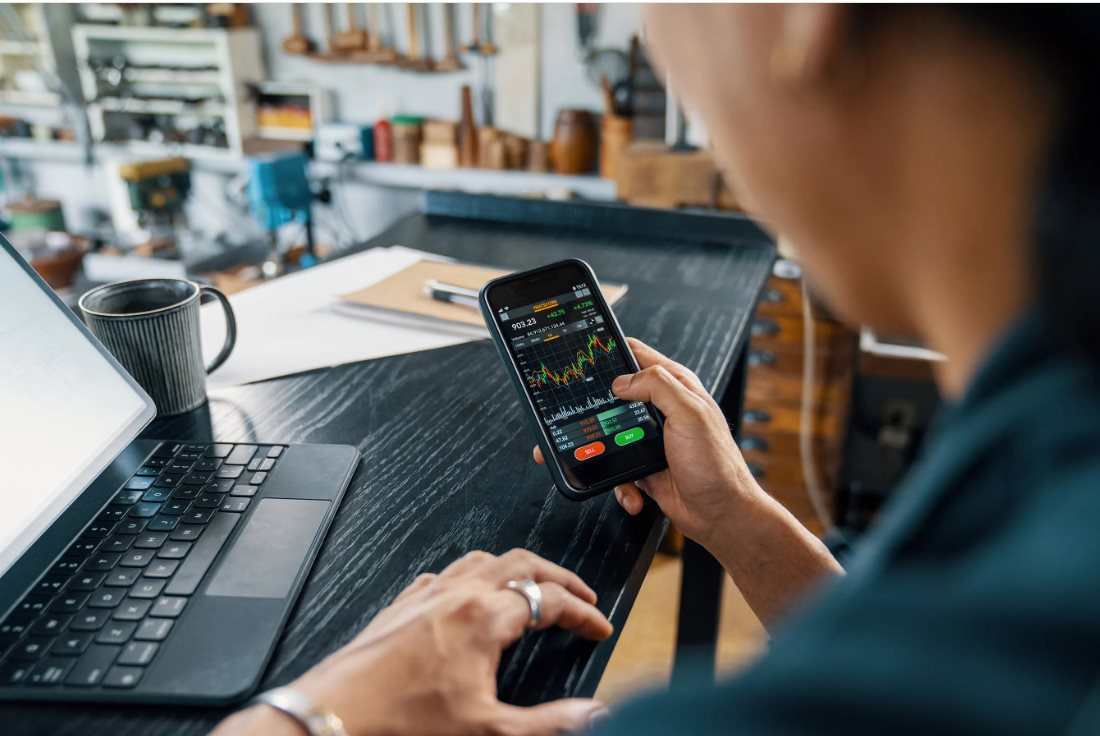
Similarly, the cryptocurrency market has powerfully demonstrated that acting on strong emotions and momentum can outperform acting on caution.
In this market, the cautious don’t make much money, while the daredevils who “buy the dip” do. Crypto players used to taunt the skeptics: “Have fun being poor,” and sadly they weren’t wrong.
The crypto market has not only survived, but has almost become mainstream. Even Jamie Dimon, CEO of JPMorgan Chase, who was once a fierce critic, has somewhat changed his mind, recently admitting that blockchain, the underlying technology of crypto, is real.
Nowadays, there is hardly any bad news that can rattle Wall Street, because investors have learned that “buying the dip” almost always pays off.
The philosophy of “Buying the Dip” has become dogma, reinforcing the belief that no matter how bad the news, the market will always recover, largely due to the constant flow of money.
This creates a self-reinforcing loop: skeptics are punished by becoming relatively “poorer,” while risk takers are rewarded, further encouraging speculative behavior. As a result, risk is not properly priced, and attention to fundamentals is increasingly diminished.
While the market may seem immune to bad news, every wise investor understands that this trend cannot last forever. The accumulation of assets priced on unrealistic expectations is a classic feature of a bubble.
The question is not whether a bubble will burst, but when. Bubbles need a catalyst to burst, whether it is the failure of a highly anticipated technology, a sudden change in monetary policy, or simply a drying up of new money.
When that “brake moment” happens, those who bought based on hope and emotion will have to face reality: a company that doesn’t generate sustainable cash flow can’t sustain a trillion-dollar valuation.
Until then, the financial markets were walking a tightrope, where the courage of the “child” to point out that the Emperor was naked was the most financially risky and disadvantageous action.
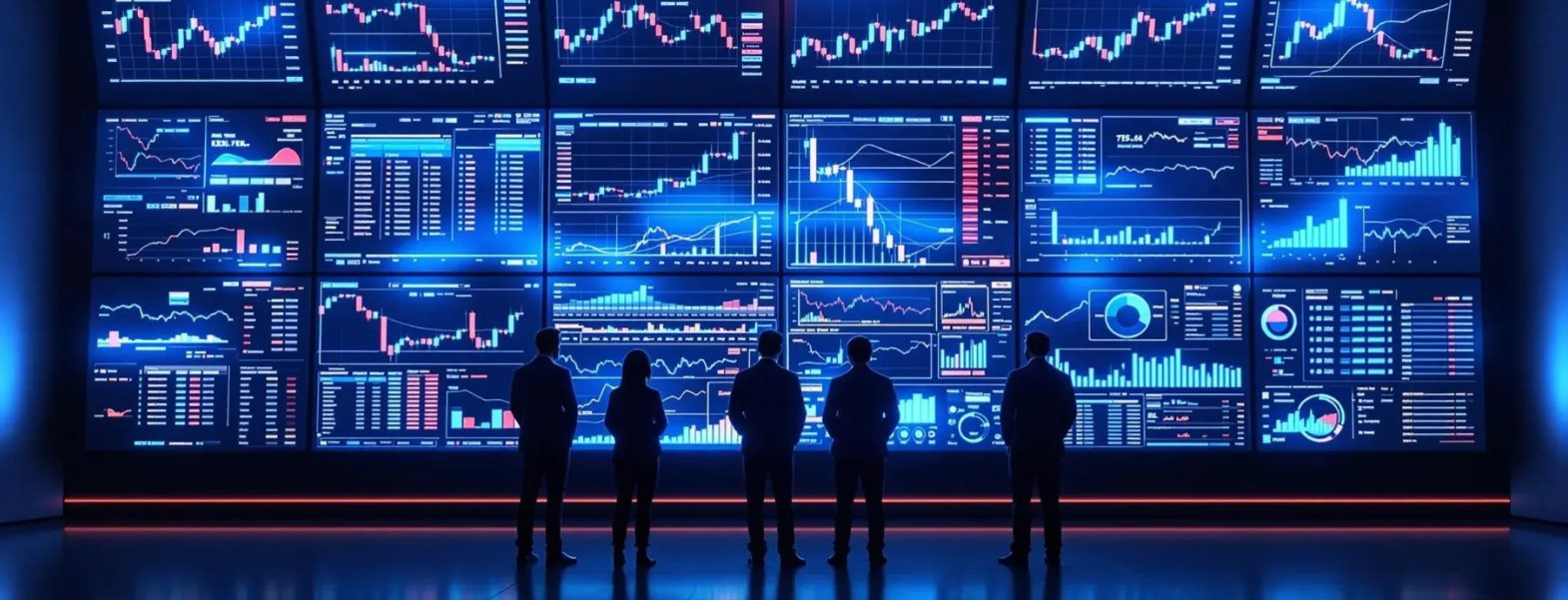
“In theory, if investors buy every time the market drops, they should win in the long run,” said Steve Sosnick, chief strategist at Interactive Brokers. “Unfortunately, no one has unlimited capital to keep buying, and no one has unlimited time to wait for the market to recover.”
Wall Street may be bustling today, investors may be cheering, but there is an ominous silence beneath the bullish music. Because when the song stops, we will see the Emperor and realize he never wears anything.
News
Behind the ‘Glamorous’ Appearance: Paige Spiranac Chokes Back Tears as She Opens Up on the Dark Reality of Being an Influencer.
Paige Spiranac Chokes Back Tears as She Opens Up on the Dark Reality of Being an Influencer Paige Spiranac’s Internet…
Hailey Bieber wants to…’expand the family’
Justin and Hailey Bieber Taking a ‘When It Happens, It Happens’ Approach to Expanding Their Family Getty Images | Hailey…
Elon Musk is immersed in a young startup, leaving Tesla to plummet, shareholders ‘sitting on hot coals’
For much of the summer, Elon Musk was absorbed in something else, leaving Tesla to plummet. When Elon Musk left…
Despite agreeing to forgive the perpetrator, Erika Kirk still wants him to face a ‘conscience’ sentence.
Erika Kirk: ‘We deserve to have cameras’ in Utah court hearings for her husband’s accused killer, after attorneys suggest banning…
After all, Charlie Kirk’s 3-year-old daughter has learned that her dad is in heaven! The little girl’s reaction made fans heartbroken
What Charlie Kirk’s 3-Year-Old Daughter Said When Told ‘Daddy Is In Heaven’ After Charlie Kirk’s death, his wife, Erika, told…
Blake Shelton explains why The Road will be an upgrade on what ‘The Voice’ lacks
Blake Shelton Dishes About How ‘The Voice’ Could Be Better and What’s Different on ‘The Road’ Blake Shelton knows a thing…
End of content
No more pages to load



